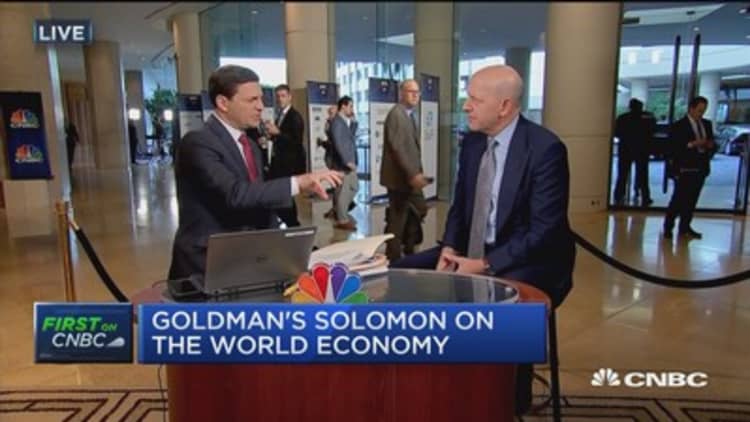
The postelection enthusiasm over pro-growth policies has begun to fade as political reality has set in to the investing world, a high-ranking Goldman Sachs executive said.
David Solomon, the Wall Street titan's president and co-chief operating officer, told CNBC that while the economy still has some strong selling points, the possibility of a quick boost from Washington is not as promising.
"As we got past the election, there was a lot of conviction around the fact that all this policy activity was going to move forward. It was going to be very good for asset prices, for market activity, and I think we've gotten into the first quarter and the process of actually creating legislation and moving a bunch of this stuff forward (is) complicated stuff," Solomon said in a live interview from the Milken Institute Global Conference.
"And so I think now people are more cautious about what's realistic that can get done, what would be the time frame under which it can be done," he added. "People are going to have to watch this all very closely. So I'd say some of the conviction that existed after the election ... some of that conviction's faded here."
Donald Trump won the election in November on promises of an aggressive agenda that would include lower taxes, less regulation on business and more government spending on infrastructure.
However, there was little legislative action during Trump's first 100 days in office. The White House last week released a one-page summary of tax cuts it wants to implement, plus a proposal to allow companies to bring home overseas profits at a reduced rate.
Solomon said the latter proposal, often called "repatriation," would be positive both for his company and financial markets.
"I think it's a positive for the markets," he said. "I think it's a positive for the economy here in the U.S. A bunch of that capital's going to get returned; a bunch of that capital will be invested in a different context. It all creates activity. Our business obviously benefits when activity is created."


